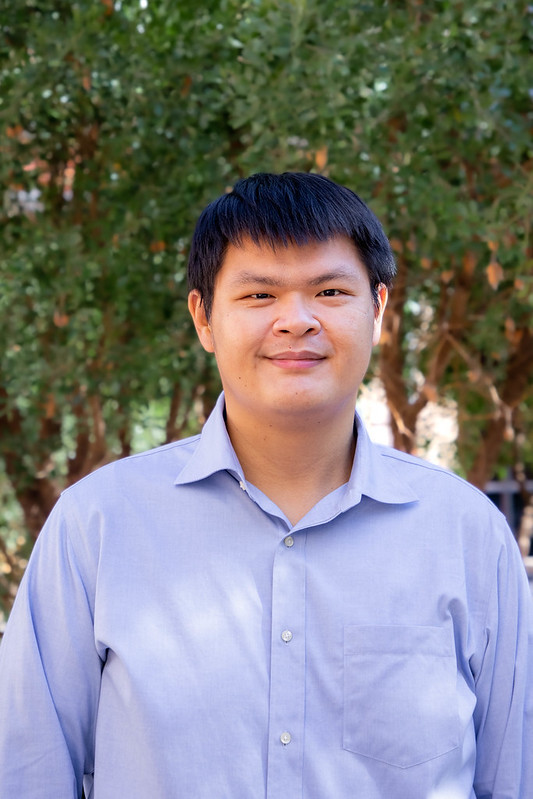
Kai-Tang Chang shares his experience as an international student and goals for expanding Couple, Marriage, and Family Therapy practices to Taiwan
Kai-Tang Chang is a Ph.D. student in Couple, Marriage, and Family Therapy (CMFT) program who began his educational and professional career in Taiwan. After finishing medical school in 2014, he completed his psychiatric residency at Jianan Psychiatric Center. He then became an attending physician and the chief of the Department of Psychiatry at Puzi Hospital in Chiayi between 2019 and 2022. During this time, Chang focused on understanding patients from a pathological standpoint and assessing how to treat them through medicine. He realized there was little training on the social aspect of mental illness, with an emphasis on biological and psychological aspects.
“Based on my observations, relapses were frequent due to persistent family system dysfunctions,” Chang said. “After learning family therapy and integrating it into my practice, I found this approach can alleviate patients’ psychiatric symptoms, prevent relapse, and help me understand patients’ sufferings for planning a better treatment.”
The Couple, Marriage, and Family Therapy program at Texas Tech is accredited by the American Association of Marriage and Family Therapy (AAMFT) and offers both a master’s and doctoral degree plan. For students like Chang, this offers an excellent opportunity to begin the Ph.D. program without a master's degree because professors can help introduce and build on concepts from master's courses. Another leading factor that piqued Chang's interest in Texas Tech is the rural environment similar to the one he experienced in Taiwan, where he gained experience treating patients with substance use disorders.
“Since previous research regarding the family therapy in treating adult patients with substance use disorder is scarce, I would like to develop studies in this area,” Chang said. “CMFT program at Texas Tech is under the Department of Community, Family, and Addiction Sciences, which provides me indispensable research resources.”
While at Texas Tech, Chang is working as a teaching assistant and is eager to showcase his teaching and supervising skills in the field of family therapy. As an international student, he has a unique opportunity to apply a different cultural outlook to the practice of family therapy. Chang aims to bring cultural diversity into the master’s in therapy program by sharing his experience working with families from a different culture.
While Chang has had some adjustment pains as he adapts to life in the United States, he has found help and support from numerous Texas Tech programs and organizations. He has used the graduate writing center for help with adjusting to using English as his main form of communication. He has also joined the critical conversation club, a platform for faculty and students to discuss complex topics regarding diversity and human dignity.
“Thankfully, Dr. Fife and Dr. Brown, the faculty members in our program, and other students in our program are really helpful,” Chang said. “They gave me a lot of emotional support and good suggestions about adjustment.”
After completing his Ph.D. degree at Texas Tech, Chang plans to return to Taiwan. He will use his skills gained through professional and educational work to advocate for a family therapy specialty in psychiatry. He sees himself pursuing a teaching position at a medical school to educate young students and psychiatrists about family therapy. Chang said he envisions influencing policies and using family therapy to treat substance use disorders. According to Chang, Taiwan is facing a critical point in which substance abuse management is changing from judicial correction to medical treatment. He intends to bring an American family therapy perspective back to Taiwan to help with this change.
